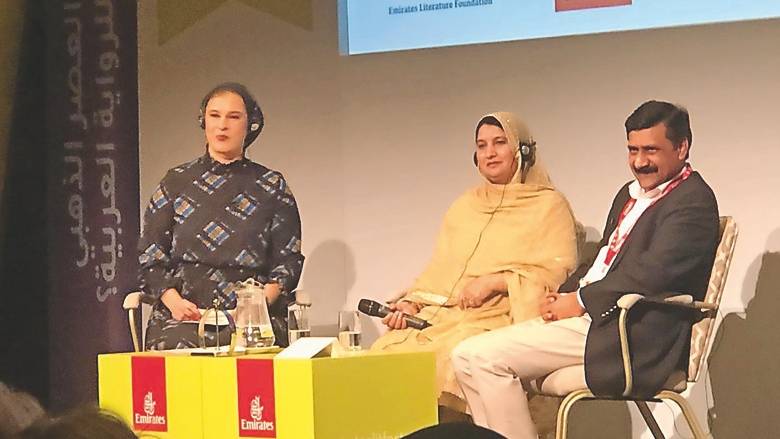
Most people know Nobel Peace Prize winner Malala Yousafzai, who was shot in 2012 by the Taleban for demanding girls’ rights to education, but few have heard of the playful squabbles she has with her brothers or the doting relationship she shares with her parents. Malala’s mother Toor Pekai Yousafzai and father Ziauddin Yousafzai provided a peek into the family’s lives beyond the fame and humanitarian work to a captivated audience at the Emirates Airlines Festival of Literature recently. Ziauddin was in Dubai to promote ‘Let her Fly’, his book that traces the inspirational journey of Malala’s father from a boy in Shangla in Pakistan to a man who broke with tradition. He was joined by his wife ToorPekai and the session was moderated by founder of the Cross Red Lines dialogue series Manal Omar. The Yousafzais vehemently believe that prosperity in a home and the society-at-large can happen only through women’s education. Their daughter Malala is now in her final year of studies at Oxford University and continues her work with the Malala Fund, a non-profit organisation that advocates human rights and education of women and children.
Ziauddin said: “I am an equal partner of Toor. I have two feminist sons and a feminist daughter. In a patriarchal society such as ours, daughters are known by their fathers. I am proud to be known as Malala’s father.”
Malala’s mother ToorPekai said: “I’ve always told my children to tell the truth and to stand for what is right. Boys and girls are equal and though people might be of different colours and races, everyone is equal.” She advised parents to listen to their children. “When children get scared, they don’t say what they feel,” she said. Meanwhile, Ziauddin called the Yousafzais a family of five that is rich in terms of moral value where love, respect and empathy is very important. “We came from a lot of adversity and poverty. We would’ve never thought we’d reach where we are today. When a lot of people ask me what I do right in raising my daughter, I tell them about what I did not do. I did not clip her (Malala’s) wings.”
Both Ziauddin and ToorPekai were critical of the patriarchal system that has not allowed girls’ education in the Swat Valley. “The government at that time, even today, is very patriarchal. There are a lot of opportunities for men, but very little for women.” ToorPekai said she did fear for the family’s lives when they were outspoken against the Taleban, referring to the conflicts in 2012. She said: “But I realised, if I didn’t raise my voice, then who would.”
(Extracted from khaleejtimes.com)

COMMENTS